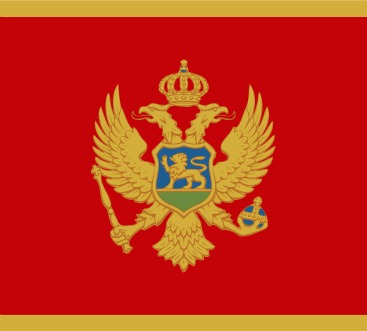Mr. Speaker, I wish to inform my colleagues of the steps Montenegro has undertaken to combat trafficking in persons. This progress was reported to me by Montenegro’s Deputy Prime Minister and Interior Minister, Dragan Djurovic, the republic’s anti-trafficking coordinator, Aleksandr Mostrokol, and Mirjana Vlahovic from the Montenegro Women’s Lobby. All three were in Washington last month for a conference hosted by the Center for Strategic and International Studies.
Montenegro is a republic of the former Yugoslavia, and the only one to remain in a state with Serbia. After some political changes took place in the late 1990s, Montenegrin authorities stood in opposition to Slobodan Milosevic’s undemocratic rule at home and aggression towards Serbia’s neighbors. Montenegro, however, has been plagued by official corruption and organized crime. Trafficking in persons, the human slavery of our day, has become a highly developed criminal activity in Montenegro, as in other places in the region.
Last year, Montenegro received considerable attention for a case in which a trafficking victim–a woman from Moldova who had been raped, tortured and severely beaten for more than 3 years while enslaved in prostitution–escaped her captors, went to the authorities and provided testimony against several persons, including Deputy State Prosecutor Zoran Piperovic. What was a welcomed effort to prosecute traffickers even if they hold official positions, however, turned problematic as the victim was subjected to various forms of intimidation and her family in Moldova was threatened due to her cooperation in the investigation. When charges were suddenly dropped against Piperovic and three others, I issued a statement expressing outrage over this development. This set a dangerous precedent for going after traffickers with clout and connections elsewhere. Many likewise criticized the Montenegrin authorities for the failure to bring the case to trial.
To its credit, the Montenegrin Government responded to the widespread criticism. Mr. Djurovic invited a joint team of the Organization for Security and Cooperation in Europe and the Council of Europe to examine the case and make recommendations. Flaws were found. As a result, both the accused Deputy State Prosecutor and the prosecutor responsible for dropping the charges were sacked and new prosecutors put into office. In addition, the Montenegrin Government adopted an anti-trafficking strategy and passed several new laws designed to combat trafficking as well as to prevent future manipulations of the legal system. Additional laws, including one on witness protection, are still being developed.
In my meeting, Mr. Speaker, I welcomed the progress which has taken place in Montenegro in recent months. I also encouraged my guests to ensure that the new laws are properly implemented, and that the police, in particular, be made part of the effort to combat trafficking rather than part of the problem. Finally, I urged them to seek the reopening of the high profile trafficking case. In my view, it is insufficient to learn lessons from a crime and a subsequently botched investigation or prosecution; the perpetrators still need to be brought to justice.
The meeting left me hopeful that progress is being made in Montenegro. I also hope, Mr. Speaker, that my colleagues will join me in supporting U.S. programs designed to combat trafficking in persons in Montenegro, in southeastern Europe, and around the globe.







